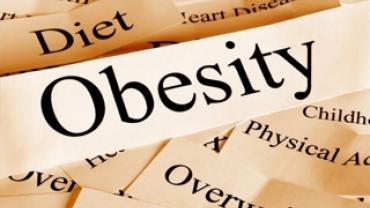
It is no secret that obesity is prevalent in America today. The struggles facing the morbidly obese include the health-jeopardizing symptoms such as excessive adiposity around the waistline hypertension and dyslipidemia. Also noteworthy is that signature rise in insulin resistance that occurs in obese patients. This debilitating combination of symptoms referred to as metabolic syndrome indicates a disruption in normal metabolic processes. What exactly is the root cause of this? Is there just one?
Medical professionals too often default to two simple suggestions when faced with helping patients reverse metabolic syndrome: lose weight and exercise. However it is really that simple? New research suggests other factors including the composition of gut bacteria exposure to toxins and genetic predisposition all trigger obesigenic tendencies in the body. In addition to these another contributing factor to obesity that is being more clearly identified is stress.
By design the stress response should elicit a fight-flight response in the body which is helpful during those times when we need to take action. However the chronic stress from sitting in traffic struggling in personal relationships and keeping a job can elicit what is called the "defeat response" when the fight-flight action response is not utilized. What occurs during the defeat response is a dysregulation of the hypothalamic-pituitary-adrenal (HPA) axis those feedback interactions among the hypothalamus the pituitary gland and the adrenal glands.
As a result there are stress-induced changes of the hormones insulin cortisol and catecholamines all major contributing factors to obesity. Cortisol levels were first shown to impair glucose tolerance (IGT) contributing to obesity and metabolic disease in Cushing's syndrome. Removing the adrenals in effect reversed the IGT hypertension and obesity.
The dysregulation of the HPA axis and its associated hormonal imbalances affects important endocrine issues such as thyroid dysfunction autoimmunity inflammation and obesity. At the neurocircuitry level chronic stress may affect the mesolimbic dopaminergic system and other brain regions that drive consumption of highly palatable foods to satiate reward. In turn these compulsive food choices reinforce circuitry patterns that drive weight gain.
Also activation of genes associated with regulation of cortisol production plays a role in the development of obesity and metabolic disease. In contrast over-expressing genes of enzymes that inactivate cortisol has the reverse effect highlighting the cortisol-obesity connection.
In other studies the dysregulation of the HPA axis is associated with eating disorders such as binge eating disorder bulimia and anorexia nervosa. Chronic stress leads to imbalanced food intake because cortisol metabolism directly affects the levels of insulin which in turn regulate food intake.
More research is needed to highlight the association between obesity and stress-induced endocrine imbalances. However nourishing the endocrine system in a stressed world can be the first line of treatment for many individuals. Eating a clean whole foods diet can help remove hidden toxins and increase insulin sensitivity mitigating insulin resistance and boosting metabolic function. Nutrients shown to support the adrenal glands include N-acetyl tyrosine and vitamin C providing critical catecholamine repletion B-vitamins to help balance production of stress hormones American and Indian ginseng both aid in regulating cortisol levels and licorice root which extends the serum life of cortisol. In Part II we will take a closer look at how these nutrients impact adrenal health.
Read: The Adrenals: A Missing Link to Obesity - Part II